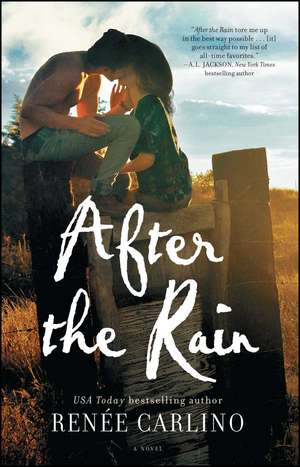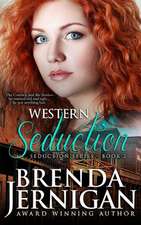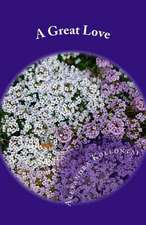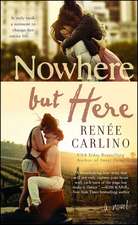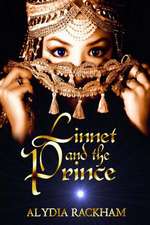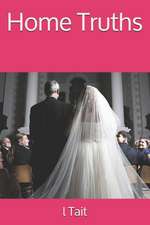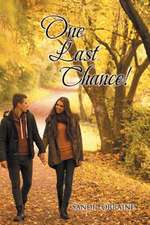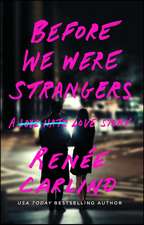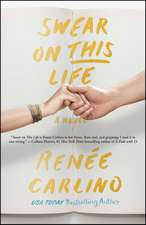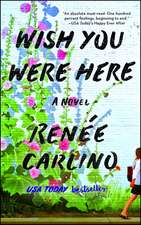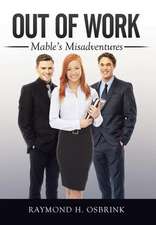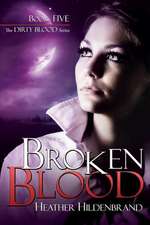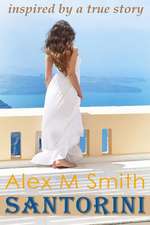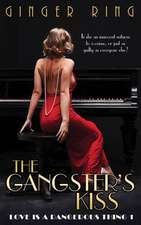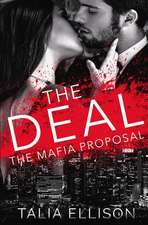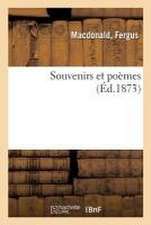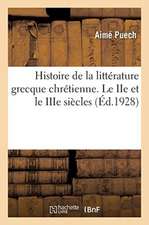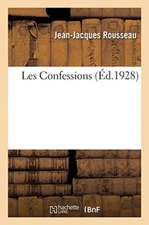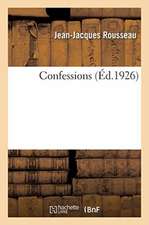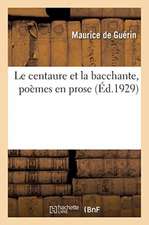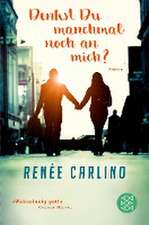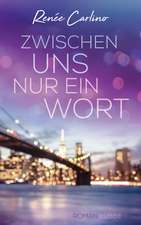After the Rain: A Novel
Autor Renée Carlinoen Limba Engleză Paperback – 20 noi 2014
Nate Myers graduated from UCLA medical school at the top of his class, ready to follow in the footsteps of his father, a superstar cardiothoracic surgeon. Six years later, Nate's career is being ruined by a malpractice suit. Questioning himself for the first time, he retreats to a Montana cattle ranch to visit his uncle and gain perspective. There, he meets a beautiful young woman named Avelina who teaches him more than he ever knew about matters of the heart.
Preț: 47.22 lei
Preț vechi: 62.01 lei
-24% Nou
Puncte Express: 71
Preț estimativ în valută:
9.04€ • 9.42$ • 7.51£
9.04€ • 9.42$ • 7.51£
Carte disponibilă
Livrare economică 28 februarie-12 martie
Preluare comenzi: 021 569.72.76
Specificații
ISBN-13: 9781476763996
ISBN-10: 1476763992
Pagini: 304
Dimensiuni: 135 x 210 x 20 mm
Greutate: 0.27 kg
Editura: Simon & Schuster
Colecția Atria Books
ISBN-10: 1476763992
Pagini: 304
Dimensiuni: 135 x 210 x 20 mm
Greutate: 0.27 kg
Editura: Simon & Schuster
Colecția Atria Books
Notă biografică
Renée Carlino is a screenwriter and the bestselling author of Sweet Thing, Nowhere But Here, After the Rain, Before We Were Strangers, Swear on This Life, and Wish You Were Here. She grew up in Southern California and lives in the San Diego area with her husband and two sons. To learn more, visit ReneeCarlino.com.
Extras
After the Rain
CHAPTER 1
Healer
Avelina
FALL 2003
My middle name is Jesus. Actually it’s Jesús de los Santos. In Spain it means Jesus of the Saints; in America it’s just a really strange middle name to grow up with. My parents came to America from Spain in the early eighties so my father could go to work on his cousin’s cattle ranch in Central California. To my mom and dad, America meant freedom, education, prosperity, and happiness. I was born here in ’85, ten years after my brother Daniel. My mother, being a devout Catholic, continued her family’s tradition of giving daughters religious middle names. I was her only daughter, born Avelina Jesús de los Santos Belo, which was quite a mouthful, so on school and medical records my mother shortened it to Avelina Jesús Belo. No pressure there.
Aside from putting up with the occasional jokes from classmates about my middle name, I had an otherwise idyllic childhood living on the ranch and attending the local public schools. Since before I can remember, I was riding horses and moving cattle with my father, brother, and cousins. The work was in my blood and riding horses came to me naturally, unlike making friends or doing other typical girlie things.
We had everything my parents wished for when they came here until I turned sixteen. That’s when my father was diagnosed with lung cancer. He was the first of many whom I loved but wasn’t able to mend. There were no healing powers in my hands; I was just a little girl with too many hard lessons to be learned. After he passed, my mother fell apart. His memory haunted her and made her frail. For months she sat in the ranch house, in front of the window, looking out for someone to come and rescue her—perhaps my father’s spirit, or maybe death.
I resented her for not being stronger, for not seeing how blessed she was. After burying my father, my brother dove into his own life, going to college and starting a family in New York City, far away from the ranch. The horses became my friends . . . and family. I started barrel racing in rodeos and competitions to make extra money while I watched my mother wither away in front of my eyes.
In my last year of high school, right after I turned eighteen in October 2003, my brother made the decision to send our mother back to Spain. Daniel promised me it was for her own good as well as mine. He agreed to take me in so I could finish my last year of high school, which meant moving all the way to New York, living in the city with his pretentious wife, starting at a new school, and being without my horses. I had no other options. I knew I would have to go somewhere, and New York sounded like a better option than Spain at that point.
Two weeks before we were to move, wild brush fires began raging in Southern California, sending clouds of smoke and haze into our valley, so I took my mother with me to a rodeo in Northern California to escape the dreadful air. We trailered all four of our horses, stopping periodically and letting them graze in the beautiful, untouched land of California’s Central Valley. During our drive, she spoke few words to me. She stayed hunched in the passenger seat, gazing out the window. When we traveled west to a small stretch of road where the mountains met the ocean, she sighed and said in her heavily accented English, “You are a healer. You have a gift. You’ve brought me home, belleza.” Beautiful, she called me. I looked exactly like her, with brown eyes too big for my head and long, dark, unruly hair.
“I’m not, Mama. I’m just a girl and we’re still in California,” I said to her. She didn’t respond—she was too far gone. Most of the time she was despondent like this. There would be the occasional nonsensical observation and then she would go back to quietly mourning my father. She existed in a grief-filled world that was off limits to the living. She existed in the past, and I knew I would never be able to help her, which made it the second time in my short life that I felt utterly powerless.
She spent most of that weekend in the cab of our truck or the dingy motel room where we were staying while I practiced and competed. I brought her meals and made sure she was okay before I went back to tending to the horses. I was scheduled to race for the last time on Sunday afternoon so I spent the morning watching the other events, sitting atop the corral just outside of the arena. It was a small rodeo composed basically of a main arena and two corrals freckled by a few sets of old, wooden bleachers. There wasn’t much money in the purses at those rodeos, but it was good practice and it wasn’t too far for me to drive.
During the men’s team-roping finals one of the horses, saddled and waiting in the corral, sauntered over to me. She nudged my leg and sniffed at my jeans. I let her smell my shoes and then I pushed back against the front of her face, in the space between her eyes and nose. “Go, get outta here.”
As soon as the words left my lips, I heard a brief whistle. Across the corral stood a man, his face shadowed by the large brim of his black Stetson. The mare left my side abruptly and trotted over to him. I watched as he climbed into the saddle with grace before giving the horse a subtle foot command to move forward into the arena. His team-roping partner entered from the other side. Just before the steer was released, the man looked over to me and nodded, the kind of nod that means something. It’s the quiet cowboy’s version of a wolf whistle. I lost my balance on the top of the corral and wobbled just for a moment before smiling back at him.
Instantly, the steer was out of the chute, followed by the men, one on each side. They roped the speeding creature in 5.5 seconds. It was fast, very fast but not fast enough to win. I fully expected to see two sulking cowboys trot back to the gate but only one looked totally defeated. The other, the man in the black Stetson, was smiling and riding toward me.
As he approached with the reins and lasso in his left hand, he removed his hat with his right. He was so much younger than I expected and he was grinning emphatically. Two deep dimples appeared on the sides of his boyish cheeks. “Hey there, you distracted me,” he said, still smiling.
“I’m sorry,” I mumbled.
“I’m kidding. I picked me a dragger. We didn’t have a chance.” His voice was smooth and confident. He was referring to the fact that the steer wouldn’t lift his hind legs to be roped.
“Good thing, I thought I blew it for you.”
“It takes more than a gorgeous woman perched on a fence to throw me off my game,” he said, placing his hat back on his head. I never thought of myself as gorgeous or even a woman for that matter. My heart leapt and bounced inside my chest. He maneuvered his horse through the gate, hopped off, and led her into the corral where she came up to me again. “Bonnie likes you.” He laughed. “You’re the only one besides me.”
I stepped down and began helping him remove her saddle and bridle. “She’s a fine horse.”
“She’s a baby—a little too eager, but she’ll learn,” he said, almost to himself.
“Bonnie, huh? Cute name. Are you Clyde?” I asked.
He smiled, removed his hat, and reached his hand out. “Oh, excuse me, ma’am. Where are my manners? I’m Jake McCrea.”
I took his hand and shook it firmly. “Avelina Belo.”
“Beautiful and exotic name. It suits you.” The corner of his mouth turned up into a handsome smirk. His eyes were the most vibrant blue. In the sunlight it looked like little electrical currents circled his pupils.
“Thank you,” I said but found myself at a loss for more words. His compliment awoke a feeling in me I had never experienced. I was never interested in dating, and I never thought of myself as attractive. That tingly feeling girls get long before they’re eighteen finally hit me like a million pulses of light striking my chest and moving south.
“What’s a girl like you hanging around the corrals for?”
I hesitated. “Like me?”
“Yeah, like you?”
“I’m racing.” I pulled my phone from my back pocket and checked the time. “Oh, shoot. I’m going on in twenty minutes. I gotta warm up my horse and change.”
“I can warm up your horse, just point me in the right direction?”
“She’s the Appaloosa, right over there. The one trying to bite that kid.”
He followed my gaze to where Dancer was stretching her neck through the corral slats, trying to bite the arm of a young kid who was leaning back against the fence. Jake whistled to call her over but Dancer ignored him. He glanced over to me with a questioning look.
“Dancer,” I said just above a whisper. She pinned her ears before turning and trotting toward me.
“Huh,” Jake said, shaking his head. “Never seen that before.”
I led her out of the corral to the back of the trailer and began dressing her for the race.
“She has great lines.” He smoothed a hand over her spotted flank.
“Most people think she’s ugly.”
“No, she’s beautiful.” He was stroking the horse but looking right into my eyes when he said it.
My heartbeat spiked. “You can just take her around a couple of times while I change. She tires fast.”
“Okay,” he said as he worked to lengthen the stirrup. He lifted himself into the saddle and Dancer immediately bucked. He sat firm in his seat, clearly a great horseman. Pulling the reins tighter, he caused Dancer to trot back a few steps. She swished her tail and then pricked her ears up with irritation. Jake leaned down and spoke to her in a smooth tone. “Easy now. You’re not gonna embarrass me in front of this pretty lady, are you?”
“She always takes the third barrel too wide. I can’t break her of it, just so you know.”
Dancer trotted in place, anxious to run toward the practice barrels. “How can you win if she’s always making mistakes?” Jake asked, smiling.
“She’s fast enough.”
“We’ll see.” He gave her a tight squeeze with his boot heels and off they went.
I changed quickly into my competition shirt, jeans, and boots, and within five minutes he was back. Dancer was warm but Jake looked downright worn out.
“You okay, cowboy?” I smiled up at him.
There was a glistening stream of sweat dripping down his sideburns. He jumped off and handed me the reins before removing his hat and brushing his dirty-blond hair back. He let out a huge breath. “Man, she’s a mean bitch, full of piss and vinegar, that one. I don’t know how you race that horse, skittering around like that. She didn’t take the third barrel wide, she practically tossed me over it.”
I laughed. “You’ll see.” I took the reins, hopped up into the saddle, and headed toward the arena. “This is no roping horse. She dances on air,” I shouted back to him.
He was right; she was a hard horse to handle but not when I rode her. I got to the gate just as they called my number. The buzzer rang and we were off. I bent low into her body as Dancer raced toward the first barrel. She rounded it with perfect ease and then we were off to the second barrel and then the third, which she took just a bit wider than perfect. It was an improvement. I kicked her hard and smacked the end of the reins back and forth against her shoulders. She picked up and flew home to the gate, barely touching her hooves to the ground.
As I glanced toward the time clock the announcer called my score. I won.
After collecting my prize, I headed back to the stable where my truck and trailer were parked. Jake was sitting on the tailgate, laughing as I approached.
“You got something good there, honey?” he asked.
I held up my trophy and shook it in the air. “I won three hundred dollars!”
“Are you telling me you’re gonna take me out for a beer to celebrate?”
I swallowed hard as I looked down at him from atop Dancer. I shook my head slightly and then tried desperately to peel my eyes away from him. He had changed into a clean pair of Wranglers and a white button-down shirt. Still wearing a confident grin, he swung his legs back and forth playfully on the edge of the tailgate.
When I jumped down to remove the saddle and bridle, he came around and put his hand over mine. “I was kidding. Not about the beer but about buying. I’d like to take you out for a proper dinner. Can I do that?”
He squeezed my hand, gazing into my eyes, waiting for my answer.
“My mom is at our motel. I’m . . . only eighteen.” My voice shook embarrassingly.
“Oh, well, I only just turned twenty-one.” He smiled again. “I’m far away from my home in Montana, doing the rodeo circuit through California. It’s just me and my roping partner, so it gets kind of lonely.” I could tell he meant lonely in the genuine sense, not in a sexual way. “Maybe you can bring her along? You both need to eat, right?”
“Okay,” I said to Jake McCrea just three short months before I married him.
After the Rain
CHAPTER 2
Regimented Exercise
Nathanial
SPRING 2005
Flying up and down the rows of a crowded parking lot while my mother screamed in the backseat was not how I pictured the day I would officially become a doctor. My dad, in his token Hawaiian-print dress shirt, sat in the passenger seat, calm as ever, while I anxiously sped up and slowed down, periodically glancing at the clock on the dash. I had ten minutes to be in my seat before the ceremony started. There were no open parking spaces—the lot was littered with graduates hurrying along in their green and black gowns while my dad sat there humming “Yesterday” by the Beatles.
“I’m gonna be late. Shit! I’m gonna be late.”
“Christ, Nathanial, you’re going to kill somebody. Calm down!” my mother shouted.
“Mom, please, you’re not helping. And Dad, quit with the fucking humming.”
“Nathanial, are you really going to call yourself a doctor and use that kind of language?” I looked into the rearview mirror to see my peeved mother with her arms crossed, smirking at me.
“Oh that doesn’t matter, Elaine.” My dad finally awoke from his nostalgic daze. “Our boy here needs to choose his battles. First he needs to find a parking space in this godforsaken hellhole they call a university.”
I zipped through a group of pedestrians and spotted an open space on the other side. When I hit the gas, I could hear my mother whining under her breath.
“Dad, how can you say that about your alma mater and the very hospital you practice in?”
“Times have changed, Nate. That’s all I’m saying.” He stared out the window and went back to humming “Yesterday.”
Graduation day is a turning point for so many, but for me it was just the next box to check off as I followed obediently in my father’s footsteps. The David Geffen School of Medicine at UCLA is a challenge for most, even if your dad is the head of cardiothoracic surgery, but for me medical school was a breeze. It was a party. Half of my courses consisted of a professor spewing information that had been planted in me and nurtured from the time I was able to speak. Courses in anatomy were like reciting the alphabet. The brachiocephalic veins are connected to the superior vena cava. The superior vena cava is connected to the right atrium. The right atrium is separated from the left ventricle by the atrioventricular septum. I knew these things not because my dad was a doctor but because my dad was the most passionate and revered cardiothoracic surgeon in all of Los Angeles. Even with his offbeat and sometimes risky methods, my dad was considered, within the large community of surgeons throughout the country, as the very best in his field.
The three of us jumped out of my beat-up Nissan Altima and started booking it toward the sound of the MC already beginning his speech. I scurried along, carrying my cap in one hand and car keys and cell phone in the other.
“Wait!” my mother yelled. I turned to find her standing at the edge of the parking lot with her hand on the hip of her black pantsuit.
“What is it, Mom?”
“Come on, Elaine,” my father barked.
“Wait, just wait, goddammit!” My mother never cursed. “Come here, Nathanial.” She was a petite woman with childlike features, a black pixie hairdo, and the tiniest elfin nose. Most of the time her timorous posture and gentle smile made her seem soft. I had towered over her five-foot-three frame since I was twelve years old but all she had to do was jerk her head up at me and her glare alone was as powerful as any weapon. My mother was a fearless force to be reckoned with. You know how they say behind every great man there’s a great woman? My mother would say, No, the woman is three steps ahead.
Even though she stood behind my father and me that day, she was three steps ahead of us, and by all accounts, in charge of the situation. I looked down at my feet and back to her face and saw her expression change from anger to pride.
I walked toward her. She stood up on her tippy-toes and cupped my face.
“You’re my only child. This is the only time I will get to have this moment. Before you walk up on that stage and officially become an MD, I want you to know that I’m proud of you. Even if you take all of this away—the white coat, the degrees—even if you take it all away, that doesn’t matter because I’m proud of who you are in here.” She poked me solidly in the chest, over my heart, and then she grabbed my cell phone from my hand. “And no cell phones today. I’ve already confiscated your father’s.”
I grinned at her and she winked. “Thanks, Mom. I love you.” I leaned down and kissed her cheek.
“I love you, too, and you know if this doctor thing doesn’t pan out I still think you’d make a great model.”
“I think that ship has sailed, Elaine,” my father chimed in.
It wouldn’t be fair to say that my father had pushed me to become a doctor because he didn’t—at least not overtly. I had wanted to follow in my father’s footsteps from the very beginning. But ever since I was a child, he had very carefully nudged me in the specific direction of heart surgery by basically discounting every other profession in the world. He would say, “Son, what’s more important than keeping people’s hearts beating?”
I thought I was so clever that once I had said, “What good is a beating heart without a functioning brain?”
He had, of course, very quickly replied, “It’s as good as any beating heart. The important thing to note is that you can keep even a nonfunctioning brain alive as long as you have a beating heart. Doesn’t work the other way around, does it?”
There had been about five minutes in my junior year of undergrad, when I had come home after reading about the use of power tools in orthopedic surgery, during which I had said to my father, “I think orthopedics is going to be my thing, Dad.” The next day he had brought home a trunk full of items from Home Depot and one extra-large cow femur bone. He then ran the cow bone over with his car in the driveway until it splintered, cracked, and broke in several places, and then he gave me a bag of tiny screws and bolts and a cordless drill.
“Have at it, kid.”
I had spent sixteen hours straight in the garage without so much as a drink of water. By the time I had finished, I was exhausted and thoroughly spent but proud of the fully assembled cow bone, which I paraded through the house. My mother was mortified and told my father he had created a monster. He just laughed from the couch, hollering back to me, “Looks pretty, but will it support sixteen hundred pounds?”
As I studied the bone in my hands, I became frighteningly aware that I knew nothing about orthopedics. I had spent the better part of an entire day meticulously planning and assembling an insanely complicated puzzle only to learn that the purpose of the surgery had nothing to do with how the bone looked but how the bone would function. Moments after that realization, I had another one, almost instantaneously: I didn’t care at all about how bones worked. Orthopedics was not my passion. Sure, I understood the importance of learning the basics in biology, anatomy and physiology, and general medicine, but I had been dreaming about doing heart surgery. In my dreams I would travel inside the heart. I lived in it and inspected every detail in each chamber like the parts were individual rooms. I had become obsessed with the heart and its physical functions. Even now, the only broken hearts I was interested in were ones that required surgery.
Darting between aisles and chairs, I found my seat next to Olivia Green, my lab partner through most of medical school. She had a fiery personality to go with a shock of red hair she often wound into a thick braid over her shoulder. To many of our classmates, Olivia seemed socially awkward because of her literal interpretation of just about everything. She had a certain candor about her, which I liked because occasionally we used each other for other things and she never gave me any emotional bullshit.
“You’re late. You missed the walk up.”
“I noticed. I was trapped in the parking lot.”
“Trapped by who?” she whispered in a concerned voice.
My best friend, Frankie, was sitting on the other side of Olivia. He leaned in, shot me a look, and laughed. “Nate meant the parking lot was busy, Olivia.”
“Oh,” Olivia said. Frankie shook his head and then whispered across to me, “And she’s going to be performing heart surgery? That’s a scary thought.”
“Shut up, Frankie,” she said, elbowing him in the side. Frankie and Olivia just barely got along, and I think it was for my sake. Olivia was going to make a better doctor than both of us combined, and I think that got under Frankie’s skin.
The MC, Rod Lohan, who was also a friend and colleague of my father’s, began his speech. He announced the new physicians of the class of 2005, and before I knew it I was being called up to the stage.
“Nathanial Ethan Meyers.”
I thought that would be the last time I would hear my full name without the word “doctor” in front of it, like the rest of my life would be defined completely by my profession.
As I approached Dr. Lohan, whom I’d respected most of my life, I saw a glimmer in his eye. He was proud. I turned and searched for my mother and father in the crowd and found them looking up at me the same way. The long years of hard work paid off in that moment, but just as Dr. Lohan placed the graduation hood on my shoulders, I realized that my work had only just begun.
![]()
After the ceremony, I had dinner with my parents and then met Olivia, Frankie, and a few other rowdy med school grads for drinks. We went to McNally’s, a local Irish pub. A man played the guitar and sang traditional pub songs from a tiny stage in the back. Between verses he would shout, “Chug it back, lads!”
I shook my head and wondered how I had been talked into going to a place like this. Olivia sat there bored, nursing a tiny cocktail, while Frankie, the social butterfly, made his rounds through the crowd.
“I’ll just have a water,” I said to the bartender.
“What’s the matter with you, bro? You’re not gonna have a celebratory drink?” Frankie shouted from halfway down the bar.
Olivia looked up at me, shaking her head. “Doesn’t he know you don’t drink?”
I shrugged. “Whatever, he’s just having fun.”
“He’s an imbecile.” She had no expression on her face.
I tugged on her braid. “Now, now, doc. Don’t get all hot.”
By then Frankie had walked up. “Hello, Mr. and Mrs. Boring. Don’t you two have some medical journals to be studying?” Olivia rolled her eyes.
“Actually, I do need to split, Frankie.” I gave him an apologetic look.
“I’m outta here,” Olivia mumbled.
“How about lunch tomorrow?” he asked me as I helped Olivia down from the stool.
“You got it.” Frankie was a good and loyal friend but he could be obnoxious, so I understood Olivia’s lack of patience with him.
I held the door open as Olivia and I headed out onto the street.
“I’ll walk you home,” I said to her. Her apartment was about four blocks from where we were and mine was six blocks in the other direction, but I knew she’d invite me in.
“Why are you staying in L.A. for your residency? I don’t get it,” she said as we walked briskly, shoulder to shoulder, down the sidewalk.
“Not everyone gets the privilege of doing their residency at Stanford.” I bumped my shoulder against hers in a teasing gesture.
“You would have been accepted but you didn’t even try.”
“What’s your point, Olivia?”
“I don’t know. It seems like you’re sticking around here because of your father.”
I could feel the heat spreading across my face. I clenched my jaw, stopped in my tracks, grabbed her shoulders, and turned her so she was facing me. Her large, dark eyes and freckles made her look younger but her lips were always pursed in an act of scrutiny, which sometimes made her look older. “My father has nothing to do with it. And I haven’t been given special treatment, if that’s what you’re getting at.”
She shrugged and one skinny eyebrow darted up. “Okay, whatever you say.”
“You know how hard I’ve worked. It has nothing to do with him. I’m not going to live in his shadow. I can be a better surgeon. It’s what I was born to do and I want to do it here. I like L.A. I’ve been here my whole life. I don’t need to be distracted in a new place.”
She turned and walked away, calling back, “I get it, Nate. You don’t have to walk me the rest of the way. I’m fine. Good night.”
I watched her walk down the block to the front of her building before I started jogging toward her. “Wait up, Olivia.”
She held the door to the lobby open. “What’s up?”
I hesitated. “Can . . . can I come in?” I smiled just enough to let her know I wasn’t mad at her.
She laughed once and then motioned with her hand for me to walk through the door. Once we were alone inside the elevator, I pinned her against the wall and kissed her. Her hair always smelled like tea tree oil. It was kind of a turnoff and I think she knew that. Like me, she wasn’t looking for someone to distract her. I tried not to breathe through my nose. She kissed me back, hard and demanding, and then began tugging at my belt. There was nothing warm or romantic about her.
“Hold on,” I whispered. “Not in here.”
When the elevator doors opened she grabbed my hand and pulled me down the hallway. “Hurry,” she said. “I want to be in bed by nine.”
“I’m getting you into bed right now.”
Unlocking the door to her apartment, she turned and looked at me. Her nose was scrunched up in revulsion. “I don’t want to do it in my bed, Nate.”
We had never had sex lying down. I think, in Olivia’s mind, that was too intimate. It was a miracle I could even get excited enough to be with her. She was gorgeous, but sex with Olivia was like a regimented exercise that was exactly the same every time. She told me where to put my hands and how to move and I would basically follow her directions, close my eyes, and pretend for a few moments that we weren’t just using each other night after night. It wasn’t that I wanted to find love, though. I didn’t have time for a relationship, so my arrangement with Olivia was perfect. It was just hard to overlook her cold nature sometimes.
“Over here.” She moved toward the small dining table in her kitchen. With her back to me, she pulled her tights and panties down to her ankles, lifted her skirt, and looked over her shoulder. “Come on.” She smiled playfully.
I fucked Olivia like that all the time, against a table with most of my clothes on. When I bent her over farther, I ran my hand up her back, inside of her shirt, and moved my other hand to her front. We were about ten minutes in before she came loudly, screaming, “Oh fuck!”
I finished twelve seconds later and five minutes after that I was back in the elevator heading home.
Olivia was leaving the following week to go to Stanford. I didn’t know if I would ever see her again, but sadly the thought didn’t bother me. It truly felt like the beginning of my life, and all I could think about was becoming the best heart surgeon in the country.
CHAPTER 1
Healer
Avelina
FALL 2003
My middle name is Jesus. Actually it’s Jesús de los Santos. In Spain it means Jesus of the Saints; in America it’s just a really strange middle name to grow up with. My parents came to America from Spain in the early eighties so my father could go to work on his cousin’s cattle ranch in Central California. To my mom and dad, America meant freedom, education, prosperity, and happiness. I was born here in ’85, ten years after my brother Daniel. My mother, being a devout Catholic, continued her family’s tradition of giving daughters religious middle names. I was her only daughter, born Avelina Jesús de los Santos Belo, which was quite a mouthful, so on school and medical records my mother shortened it to Avelina Jesús Belo. No pressure there.
Aside from putting up with the occasional jokes from classmates about my middle name, I had an otherwise idyllic childhood living on the ranch and attending the local public schools. Since before I can remember, I was riding horses and moving cattle with my father, brother, and cousins. The work was in my blood and riding horses came to me naturally, unlike making friends or doing other typical girlie things.
We had everything my parents wished for when they came here until I turned sixteen. That’s when my father was diagnosed with lung cancer. He was the first of many whom I loved but wasn’t able to mend. There were no healing powers in my hands; I was just a little girl with too many hard lessons to be learned. After he passed, my mother fell apart. His memory haunted her and made her frail. For months she sat in the ranch house, in front of the window, looking out for someone to come and rescue her—perhaps my father’s spirit, or maybe death.
I resented her for not being stronger, for not seeing how blessed she was. After burying my father, my brother dove into his own life, going to college and starting a family in New York City, far away from the ranch. The horses became my friends . . . and family. I started barrel racing in rodeos and competitions to make extra money while I watched my mother wither away in front of my eyes.
In my last year of high school, right after I turned eighteen in October 2003, my brother made the decision to send our mother back to Spain. Daniel promised me it was for her own good as well as mine. He agreed to take me in so I could finish my last year of high school, which meant moving all the way to New York, living in the city with his pretentious wife, starting at a new school, and being without my horses. I had no other options. I knew I would have to go somewhere, and New York sounded like a better option than Spain at that point.
Two weeks before we were to move, wild brush fires began raging in Southern California, sending clouds of smoke and haze into our valley, so I took my mother with me to a rodeo in Northern California to escape the dreadful air. We trailered all four of our horses, stopping periodically and letting them graze in the beautiful, untouched land of California’s Central Valley. During our drive, she spoke few words to me. She stayed hunched in the passenger seat, gazing out the window. When we traveled west to a small stretch of road where the mountains met the ocean, she sighed and said in her heavily accented English, “You are a healer. You have a gift. You’ve brought me home, belleza.” Beautiful, she called me. I looked exactly like her, with brown eyes too big for my head and long, dark, unruly hair.
“I’m not, Mama. I’m just a girl and we’re still in California,” I said to her. She didn’t respond—she was too far gone. Most of the time she was despondent like this. There would be the occasional nonsensical observation and then she would go back to quietly mourning my father. She existed in a grief-filled world that was off limits to the living. She existed in the past, and I knew I would never be able to help her, which made it the second time in my short life that I felt utterly powerless.
She spent most of that weekend in the cab of our truck or the dingy motel room where we were staying while I practiced and competed. I brought her meals and made sure she was okay before I went back to tending to the horses. I was scheduled to race for the last time on Sunday afternoon so I spent the morning watching the other events, sitting atop the corral just outside of the arena. It was a small rodeo composed basically of a main arena and two corrals freckled by a few sets of old, wooden bleachers. There wasn’t much money in the purses at those rodeos, but it was good practice and it wasn’t too far for me to drive.
During the men’s team-roping finals one of the horses, saddled and waiting in the corral, sauntered over to me. She nudged my leg and sniffed at my jeans. I let her smell my shoes and then I pushed back against the front of her face, in the space between her eyes and nose. “Go, get outta here.”
As soon as the words left my lips, I heard a brief whistle. Across the corral stood a man, his face shadowed by the large brim of his black Stetson. The mare left my side abruptly and trotted over to him. I watched as he climbed into the saddle with grace before giving the horse a subtle foot command to move forward into the arena. His team-roping partner entered from the other side. Just before the steer was released, the man looked over to me and nodded, the kind of nod that means something. It’s the quiet cowboy’s version of a wolf whistle. I lost my balance on the top of the corral and wobbled just for a moment before smiling back at him.
Instantly, the steer was out of the chute, followed by the men, one on each side. They roped the speeding creature in 5.5 seconds. It was fast, very fast but not fast enough to win. I fully expected to see two sulking cowboys trot back to the gate but only one looked totally defeated. The other, the man in the black Stetson, was smiling and riding toward me.
As he approached with the reins and lasso in his left hand, he removed his hat with his right. He was so much younger than I expected and he was grinning emphatically. Two deep dimples appeared on the sides of his boyish cheeks. “Hey there, you distracted me,” he said, still smiling.
“I’m sorry,” I mumbled.
“I’m kidding. I picked me a dragger. We didn’t have a chance.” His voice was smooth and confident. He was referring to the fact that the steer wouldn’t lift his hind legs to be roped.
“Good thing, I thought I blew it for you.”
“It takes more than a gorgeous woman perched on a fence to throw me off my game,” he said, placing his hat back on his head. I never thought of myself as gorgeous or even a woman for that matter. My heart leapt and bounced inside my chest. He maneuvered his horse through the gate, hopped off, and led her into the corral where she came up to me again. “Bonnie likes you.” He laughed. “You’re the only one besides me.”
I stepped down and began helping him remove her saddle and bridle. “She’s a fine horse.”
“She’s a baby—a little too eager, but she’ll learn,” he said, almost to himself.
“Bonnie, huh? Cute name. Are you Clyde?” I asked.
He smiled, removed his hat, and reached his hand out. “Oh, excuse me, ma’am. Where are my manners? I’m Jake McCrea.”
I took his hand and shook it firmly. “Avelina Belo.”
“Beautiful and exotic name. It suits you.” The corner of his mouth turned up into a handsome smirk. His eyes were the most vibrant blue. In the sunlight it looked like little electrical currents circled his pupils.
“Thank you,” I said but found myself at a loss for more words. His compliment awoke a feeling in me I had never experienced. I was never interested in dating, and I never thought of myself as attractive. That tingly feeling girls get long before they’re eighteen finally hit me like a million pulses of light striking my chest and moving south.
“What’s a girl like you hanging around the corrals for?”
I hesitated. “Like me?”
“Yeah, like you?”
“I’m racing.” I pulled my phone from my back pocket and checked the time. “Oh, shoot. I’m going on in twenty minutes. I gotta warm up my horse and change.”
“I can warm up your horse, just point me in the right direction?”
“She’s the Appaloosa, right over there. The one trying to bite that kid.”
He followed my gaze to where Dancer was stretching her neck through the corral slats, trying to bite the arm of a young kid who was leaning back against the fence. Jake whistled to call her over but Dancer ignored him. He glanced over to me with a questioning look.
“Dancer,” I said just above a whisper. She pinned her ears before turning and trotting toward me.
“Huh,” Jake said, shaking his head. “Never seen that before.”
I led her out of the corral to the back of the trailer and began dressing her for the race.
“She has great lines.” He smoothed a hand over her spotted flank.
“Most people think she’s ugly.”
“No, she’s beautiful.” He was stroking the horse but looking right into my eyes when he said it.
My heartbeat spiked. “You can just take her around a couple of times while I change. She tires fast.”
“Okay,” he said as he worked to lengthen the stirrup. He lifted himself into the saddle and Dancer immediately bucked. He sat firm in his seat, clearly a great horseman. Pulling the reins tighter, he caused Dancer to trot back a few steps. She swished her tail and then pricked her ears up with irritation. Jake leaned down and spoke to her in a smooth tone. “Easy now. You’re not gonna embarrass me in front of this pretty lady, are you?”
“She always takes the third barrel too wide. I can’t break her of it, just so you know.”
Dancer trotted in place, anxious to run toward the practice barrels. “How can you win if she’s always making mistakes?” Jake asked, smiling.
“She’s fast enough.”
“We’ll see.” He gave her a tight squeeze with his boot heels and off they went.
I changed quickly into my competition shirt, jeans, and boots, and within five minutes he was back. Dancer was warm but Jake looked downright worn out.
“You okay, cowboy?” I smiled up at him.
There was a glistening stream of sweat dripping down his sideburns. He jumped off and handed me the reins before removing his hat and brushing his dirty-blond hair back. He let out a huge breath. “Man, she’s a mean bitch, full of piss and vinegar, that one. I don’t know how you race that horse, skittering around like that. She didn’t take the third barrel wide, she practically tossed me over it.”
I laughed. “You’ll see.” I took the reins, hopped up into the saddle, and headed toward the arena. “This is no roping horse. She dances on air,” I shouted back to him.
He was right; she was a hard horse to handle but not when I rode her. I got to the gate just as they called my number. The buzzer rang and we were off. I bent low into her body as Dancer raced toward the first barrel. She rounded it with perfect ease and then we were off to the second barrel and then the third, which she took just a bit wider than perfect. It was an improvement. I kicked her hard and smacked the end of the reins back and forth against her shoulders. She picked up and flew home to the gate, barely touching her hooves to the ground.
As I glanced toward the time clock the announcer called my score. I won.
After collecting my prize, I headed back to the stable where my truck and trailer were parked. Jake was sitting on the tailgate, laughing as I approached.
“You got something good there, honey?” he asked.
I held up my trophy and shook it in the air. “I won three hundred dollars!”
“Are you telling me you’re gonna take me out for a beer to celebrate?”
I swallowed hard as I looked down at him from atop Dancer. I shook my head slightly and then tried desperately to peel my eyes away from him. He had changed into a clean pair of Wranglers and a white button-down shirt. Still wearing a confident grin, he swung his legs back and forth playfully on the edge of the tailgate.
When I jumped down to remove the saddle and bridle, he came around and put his hand over mine. “I was kidding. Not about the beer but about buying. I’d like to take you out for a proper dinner. Can I do that?”
He squeezed my hand, gazing into my eyes, waiting for my answer.
“My mom is at our motel. I’m . . . only eighteen.” My voice shook embarrassingly.
“Oh, well, I only just turned twenty-one.” He smiled again. “I’m far away from my home in Montana, doing the rodeo circuit through California. It’s just me and my roping partner, so it gets kind of lonely.” I could tell he meant lonely in the genuine sense, not in a sexual way. “Maybe you can bring her along? You both need to eat, right?”
“Okay,” I said to Jake McCrea just three short months before I married him.
After the Rain
CHAPTER 2
Regimented Exercise
Nathanial
SPRING 2005
Flying up and down the rows of a crowded parking lot while my mother screamed in the backseat was not how I pictured the day I would officially become a doctor. My dad, in his token Hawaiian-print dress shirt, sat in the passenger seat, calm as ever, while I anxiously sped up and slowed down, periodically glancing at the clock on the dash. I had ten minutes to be in my seat before the ceremony started. There were no open parking spaces—the lot was littered with graduates hurrying along in their green and black gowns while my dad sat there humming “Yesterday” by the Beatles.
“I’m gonna be late. Shit! I’m gonna be late.”
“Christ, Nathanial, you’re going to kill somebody. Calm down!” my mother shouted.
“Mom, please, you’re not helping. And Dad, quit with the fucking humming.”
“Nathanial, are you really going to call yourself a doctor and use that kind of language?” I looked into the rearview mirror to see my peeved mother with her arms crossed, smirking at me.
“Oh that doesn’t matter, Elaine.” My dad finally awoke from his nostalgic daze. “Our boy here needs to choose his battles. First he needs to find a parking space in this godforsaken hellhole they call a university.”
I zipped through a group of pedestrians and spotted an open space on the other side. When I hit the gas, I could hear my mother whining under her breath.
“Dad, how can you say that about your alma mater and the very hospital you practice in?”
“Times have changed, Nate. That’s all I’m saying.” He stared out the window and went back to humming “Yesterday.”
Graduation day is a turning point for so many, but for me it was just the next box to check off as I followed obediently in my father’s footsteps. The David Geffen School of Medicine at UCLA is a challenge for most, even if your dad is the head of cardiothoracic surgery, but for me medical school was a breeze. It was a party. Half of my courses consisted of a professor spewing information that had been planted in me and nurtured from the time I was able to speak. Courses in anatomy were like reciting the alphabet. The brachiocephalic veins are connected to the superior vena cava. The superior vena cava is connected to the right atrium. The right atrium is separated from the left ventricle by the atrioventricular septum. I knew these things not because my dad was a doctor but because my dad was the most passionate and revered cardiothoracic surgeon in all of Los Angeles. Even with his offbeat and sometimes risky methods, my dad was considered, within the large community of surgeons throughout the country, as the very best in his field.
The three of us jumped out of my beat-up Nissan Altima and started booking it toward the sound of the MC already beginning his speech. I scurried along, carrying my cap in one hand and car keys and cell phone in the other.
“Wait!” my mother yelled. I turned to find her standing at the edge of the parking lot with her hand on the hip of her black pantsuit.
“What is it, Mom?”
“Come on, Elaine,” my father barked.
“Wait, just wait, goddammit!” My mother never cursed. “Come here, Nathanial.” She was a petite woman with childlike features, a black pixie hairdo, and the tiniest elfin nose. Most of the time her timorous posture and gentle smile made her seem soft. I had towered over her five-foot-three frame since I was twelve years old but all she had to do was jerk her head up at me and her glare alone was as powerful as any weapon. My mother was a fearless force to be reckoned with. You know how they say behind every great man there’s a great woman? My mother would say, No, the woman is three steps ahead.
Even though she stood behind my father and me that day, she was three steps ahead of us, and by all accounts, in charge of the situation. I looked down at my feet and back to her face and saw her expression change from anger to pride.
I walked toward her. She stood up on her tippy-toes and cupped my face.
“You’re my only child. This is the only time I will get to have this moment. Before you walk up on that stage and officially become an MD, I want you to know that I’m proud of you. Even if you take all of this away—the white coat, the degrees—even if you take it all away, that doesn’t matter because I’m proud of who you are in here.” She poked me solidly in the chest, over my heart, and then she grabbed my cell phone from my hand. “And no cell phones today. I’ve already confiscated your father’s.”
I grinned at her and she winked. “Thanks, Mom. I love you.” I leaned down and kissed her cheek.
“I love you, too, and you know if this doctor thing doesn’t pan out I still think you’d make a great model.”
“I think that ship has sailed, Elaine,” my father chimed in.
It wouldn’t be fair to say that my father had pushed me to become a doctor because he didn’t—at least not overtly. I had wanted to follow in my father’s footsteps from the very beginning. But ever since I was a child, he had very carefully nudged me in the specific direction of heart surgery by basically discounting every other profession in the world. He would say, “Son, what’s more important than keeping people’s hearts beating?”
I thought I was so clever that once I had said, “What good is a beating heart without a functioning brain?”
He had, of course, very quickly replied, “It’s as good as any beating heart. The important thing to note is that you can keep even a nonfunctioning brain alive as long as you have a beating heart. Doesn’t work the other way around, does it?”
There had been about five minutes in my junior year of undergrad, when I had come home after reading about the use of power tools in orthopedic surgery, during which I had said to my father, “I think orthopedics is going to be my thing, Dad.” The next day he had brought home a trunk full of items from Home Depot and one extra-large cow femur bone. He then ran the cow bone over with his car in the driveway until it splintered, cracked, and broke in several places, and then he gave me a bag of tiny screws and bolts and a cordless drill.
“Have at it, kid.”
I had spent sixteen hours straight in the garage without so much as a drink of water. By the time I had finished, I was exhausted and thoroughly spent but proud of the fully assembled cow bone, which I paraded through the house. My mother was mortified and told my father he had created a monster. He just laughed from the couch, hollering back to me, “Looks pretty, but will it support sixteen hundred pounds?”
As I studied the bone in my hands, I became frighteningly aware that I knew nothing about orthopedics. I had spent the better part of an entire day meticulously planning and assembling an insanely complicated puzzle only to learn that the purpose of the surgery had nothing to do with how the bone looked but how the bone would function. Moments after that realization, I had another one, almost instantaneously: I didn’t care at all about how bones worked. Orthopedics was not my passion. Sure, I understood the importance of learning the basics in biology, anatomy and physiology, and general medicine, but I had been dreaming about doing heart surgery. In my dreams I would travel inside the heart. I lived in it and inspected every detail in each chamber like the parts were individual rooms. I had become obsessed with the heart and its physical functions. Even now, the only broken hearts I was interested in were ones that required surgery.
Darting between aisles and chairs, I found my seat next to Olivia Green, my lab partner through most of medical school. She had a fiery personality to go with a shock of red hair she often wound into a thick braid over her shoulder. To many of our classmates, Olivia seemed socially awkward because of her literal interpretation of just about everything. She had a certain candor about her, which I liked because occasionally we used each other for other things and she never gave me any emotional bullshit.
“You’re late. You missed the walk up.”
“I noticed. I was trapped in the parking lot.”
“Trapped by who?” she whispered in a concerned voice.
My best friend, Frankie, was sitting on the other side of Olivia. He leaned in, shot me a look, and laughed. “Nate meant the parking lot was busy, Olivia.”
“Oh,” Olivia said. Frankie shook his head and then whispered across to me, “And she’s going to be performing heart surgery? That’s a scary thought.”
“Shut up, Frankie,” she said, elbowing him in the side. Frankie and Olivia just barely got along, and I think it was for my sake. Olivia was going to make a better doctor than both of us combined, and I think that got under Frankie’s skin.
The MC, Rod Lohan, who was also a friend and colleague of my father’s, began his speech. He announced the new physicians of the class of 2005, and before I knew it I was being called up to the stage.
“Nathanial Ethan Meyers.”
I thought that would be the last time I would hear my full name without the word “doctor” in front of it, like the rest of my life would be defined completely by my profession.
As I approached Dr. Lohan, whom I’d respected most of my life, I saw a glimmer in his eye. He was proud. I turned and searched for my mother and father in the crowd and found them looking up at me the same way. The long years of hard work paid off in that moment, but just as Dr. Lohan placed the graduation hood on my shoulders, I realized that my work had only just begun.
After the ceremony, I had dinner with my parents and then met Olivia, Frankie, and a few other rowdy med school grads for drinks. We went to McNally’s, a local Irish pub. A man played the guitar and sang traditional pub songs from a tiny stage in the back. Between verses he would shout, “Chug it back, lads!”
I shook my head and wondered how I had been talked into going to a place like this. Olivia sat there bored, nursing a tiny cocktail, while Frankie, the social butterfly, made his rounds through the crowd.
“I’ll just have a water,” I said to the bartender.
“What’s the matter with you, bro? You’re not gonna have a celebratory drink?” Frankie shouted from halfway down the bar.
Olivia looked up at me, shaking her head. “Doesn’t he know you don’t drink?”
I shrugged. “Whatever, he’s just having fun.”
“He’s an imbecile.” She had no expression on her face.
I tugged on her braid. “Now, now, doc. Don’t get all hot.”
By then Frankie had walked up. “Hello, Mr. and Mrs. Boring. Don’t you two have some medical journals to be studying?” Olivia rolled her eyes.
“Actually, I do need to split, Frankie.” I gave him an apologetic look.
“I’m outta here,” Olivia mumbled.
“How about lunch tomorrow?” he asked me as I helped Olivia down from the stool.
“You got it.” Frankie was a good and loyal friend but he could be obnoxious, so I understood Olivia’s lack of patience with him.
I held the door open as Olivia and I headed out onto the street.
“I’ll walk you home,” I said to her. Her apartment was about four blocks from where we were and mine was six blocks in the other direction, but I knew she’d invite me in.
“Why are you staying in L.A. for your residency? I don’t get it,” she said as we walked briskly, shoulder to shoulder, down the sidewalk.
“Not everyone gets the privilege of doing their residency at Stanford.” I bumped my shoulder against hers in a teasing gesture.
“You would have been accepted but you didn’t even try.”
“What’s your point, Olivia?”
“I don’t know. It seems like you’re sticking around here because of your father.”
I could feel the heat spreading across my face. I clenched my jaw, stopped in my tracks, grabbed her shoulders, and turned her so she was facing me. Her large, dark eyes and freckles made her look younger but her lips were always pursed in an act of scrutiny, which sometimes made her look older. “My father has nothing to do with it. And I haven’t been given special treatment, if that’s what you’re getting at.”
She shrugged and one skinny eyebrow darted up. “Okay, whatever you say.”
“You know how hard I’ve worked. It has nothing to do with him. I’m not going to live in his shadow. I can be a better surgeon. It’s what I was born to do and I want to do it here. I like L.A. I’ve been here my whole life. I don’t need to be distracted in a new place.”
She turned and walked away, calling back, “I get it, Nate. You don’t have to walk me the rest of the way. I’m fine. Good night.”
I watched her walk down the block to the front of her building before I started jogging toward her. “Wait up, Olivia.”
She held the door to the lobby open. “What’s up?”
I hesitated. “Can . . . can I come in?” I smiled just enough to let her know I wasn’t mad at her.
She laughed once and then motioned with her hand for me to walk through the door. Once we were alone inside the elevator, I pinned her against the wall and kissed her. Her hair always smelled like tea tree oil. It was kind of a turnoff and I think she knew that. Like me, she wasn’t looking for someone to distract her. I tried not to breathe through my nose. She kissed me back, hard and demanding, and then began tugging at my belt. There was nothing warm or romantic about her.
“Hold on,” I whispered. “Not in here.”
When the elevator doors opened she grabbed my hand and pulled me down the hallway. “Hurry,” she said. “I want to be in bed by nine.”
“I’m getting you into bed right now.”
Unlocking the door to her apartment, she turned and looked at me. Her nose was scrunched up in revulsion. “I don’t want to do it in my bed, Nate.”
We had never had sex lying down. I think, in Olivia’s mind, that was too intimate. It was a miracle I could even get excited enough to be with her. She was gorgeous, but sex with Olivia was like a regimented exercise that was exactly the same every time. She told me where to put my hands and how to move and I would basically follow her directions, close my eyes, and pretend for a few moments that we weren’t just using each other night after night. It wasn’t that I wanted to find love, though. I didn’t have time for a relationship, so my arrangement with Olivia was perfect. It was just hard to overlook her cold nature sometimes.
“Over here.” She moved toward the small dining table in her kitchen. With her back to me, she pulled her tights and panties down to her ankles, lifted her skirt, and looked over her shoulder. “Come on.” She smiled playfully.
I fucked Olivia like that all the time, against a table with most of my clothes on. When I bent her over farther, I ran my hand up her back, inside of her shirt, and moved my other hand to her front. We were about ten minutes in before she came loudly, screaming, “Oh fuck!”
I finished twelve seconds later and five minutes after that I was back in the elevator heading home.
Olivia was leaving the following week to go to Stanford. I didn’t know if I would ever see her again, but sadly the thought didn’t bother me. It truly felt like the beginning of my life, and all I could think about was becoming the best heart surgeon in the country.
Recenzii
“After the Rain tore me up in the best way possible. Sexy, sweet, and sad, all woven together with an overwhelming undercurrent of hope, Nate and Avelina’s story is one that goes straight to my list of all-time favorites.”
“Heartbreaking, hopeful, and so beautifully written. I read the last page of After the Rain and squeezed my Kindle to my chest. Books like this make my heart feel full.”
“Renée Carlino’s writing is deeply emotional and full of quiet power. You won’t be disappointed.”
“Simply beautiful and packed full of emotion.”
“After the Rain is a powerful journey of heartbreak, forgiveness, hope, and the relentless beauty of true love.”
“After the Rain is Renée Carlino’s most heart-wrenching and beautiful story to date…one of my favorite reads of all time!”
“I couldn't get enough of this compelling, heart-wrenching, sexy, and beautifully-written story of second chances and new beginnings. I finished with tears streaming down my cheeks and a smile plastered to my face, so grateful for the time spent with these captivating characters who now hold a very special place in my heart.”
“Heartbreaking, hopeful, and so beautifully written. I read the last page of After the Rain and squeezed my Kindle to my chest. Books like this make my heart feel full.”
“Renée Carlino’s writing is deeply emotional and full of quiet power. You won’t be disappointed.”
“Simply beautiful and packed full of emotion.”
“After the Rain is a powerful journey of heartbreak, forgiveness, hope, and the relentless beauty of true love.”
“After the Rain is Renée Carlino’s most heart-wrenching and beautiful story to date…one of my favorite reads of all time!”
“I couldn't get enough of this compelling, heart-wrenching, sexy, and beautifully-written story of second chances and new beginnings. I finished with tears streaming down my cheeks and a smile plastered to my face, so grateful for the time spent with these captivating characters who now hold a very special place in my heart.”
Descriere
A deeply emotional contemporary romance about the second chances waiting beyond the shattered dreams of youth.
